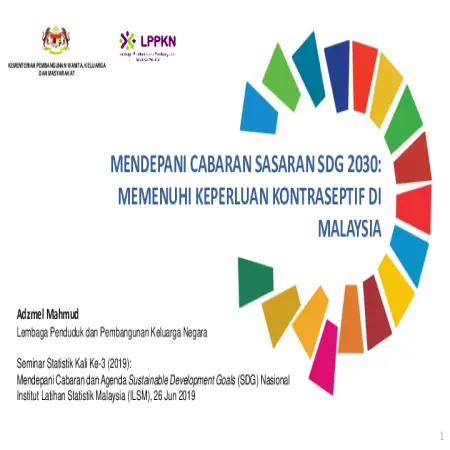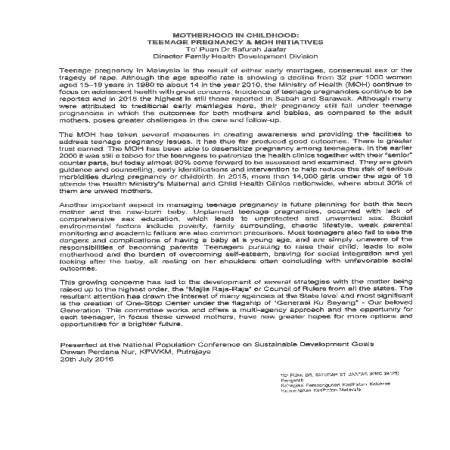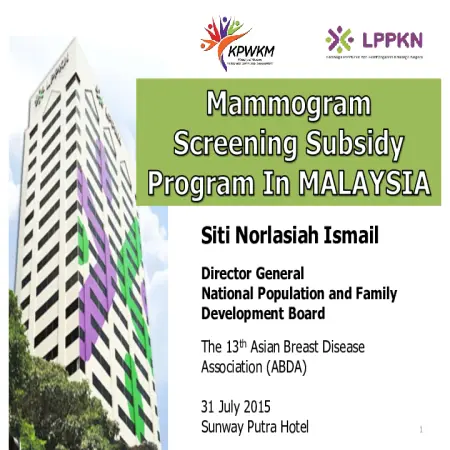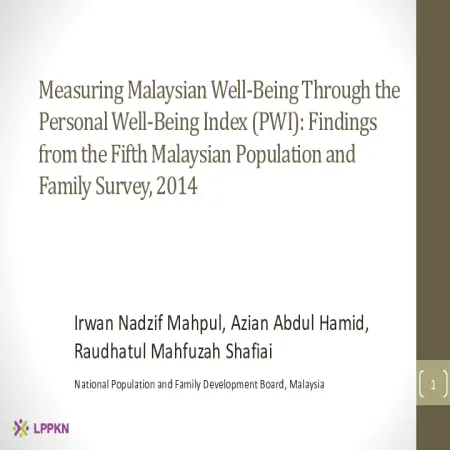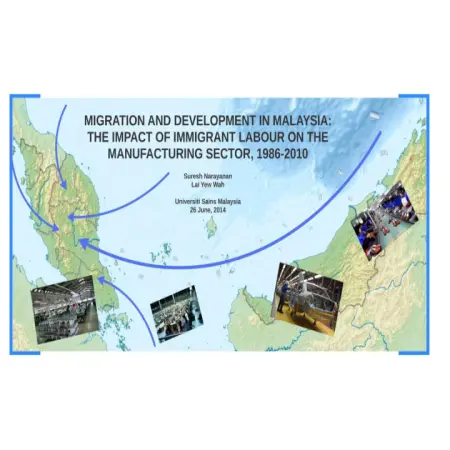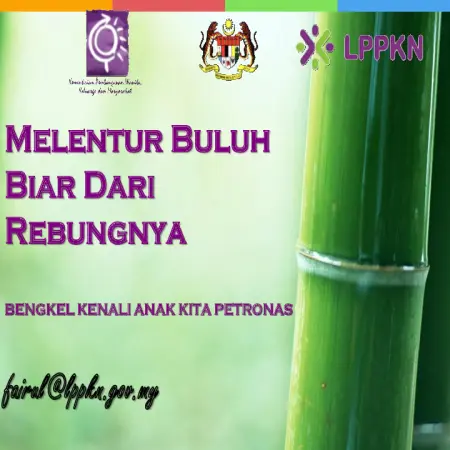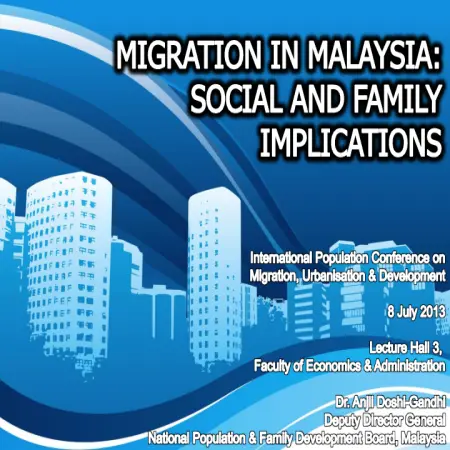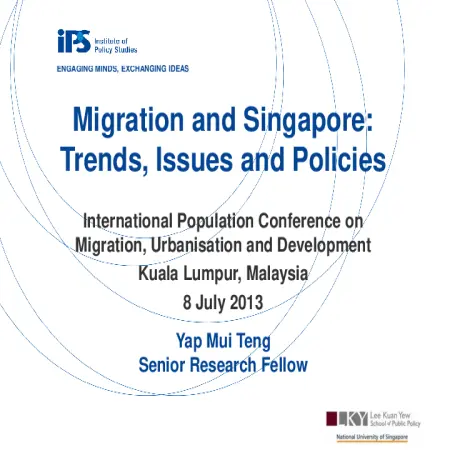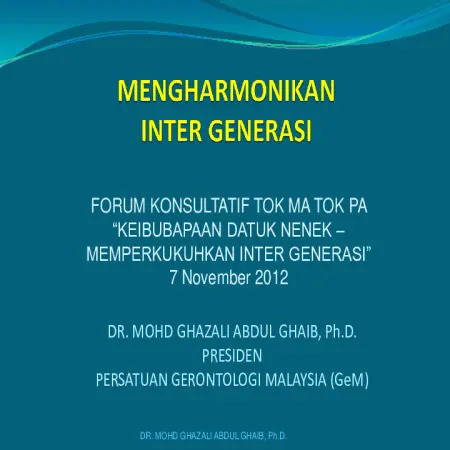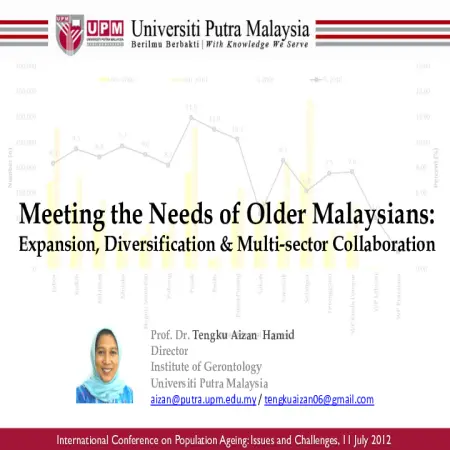Browse by Type
Results for Item type : "Conference or Workshop Item"
2019 (1)
|
|
Mendepani cabaran sasaran SDG 2030: memenuhi keperluan kontraseptif di Malaysia
Item Type: Conference or Workshop Item
Editor:
Year: 00/00/2019
Abstract: This paper will present on the trends and achievements of contraceptive use rates, unmet contraceptive requirements and modern contraceptive demands met. In addition, the presentation will also touch on issues and challenges on the rate of contraceptive use which is still hovering around 50 to 52 percent over the past three decades as well as the level of unmet needs in Malaysia which is relatively high compared to other Asean countries.
|
|
|
|
2017 (1)
|
|
Malaysian infertile men and women : do they suffer mental health issues?
Item Type: Conference or Workshop Item
Editor:
Year: 00/00/2017
Abstract: This study revealed that Malaysian infertile men and women demonstrated susceptibility to mental health problems that occurs more commonly among women than men. Thus, this study may facilitate fertility facilities to strategize and redesign better intervention for the infertile couples.
|
|
|
|
2016 (1)
|
|
Motherhood in childhood: teenage pregnancy & MOH initiatives
Item Type: Conference or Workshop Item
Editor:
Year: 00/00/2016
Abstract: Teenage pregnancy in Malaysia is the result of either early marriages, consensual sex or the tragedy of rape. Although the age specific rate is showing a decline from 32 per 1000 women aged 1-19 years in 1980 to about 14 in the year 2010, the Ministry of Health (MOH) continue to focus on adolescent health with great concerns. Incidence of teenage pregnancies continue to be reported and in 2015 the highest is still those reported in Sabah dan Sarawak. The MOH has taken several measures in creating awareness and providing the facilities to address teenage pregnancy issues. They are given guidance and counselling, early identifications and intervention to help reduce the risk of serious morbidities during pregnancy or childbirth. This presentation discusses about teenage pregnancy problem in Malaysia.
|
|
|
|
2015 (2)
|
|
Mammogram Screening Subsidy: Program in Malaysia
Item Type: Conference or Workshop Item
Editor:
Year: 00/00/2015
Abstract: In Malaysia, a woman has a 1:19 life time risk of developing breast cancer in her lifetime. Breast cancer contributes 32.3% of all female cancers. To reduce the incidence of breast cancer, the Government has embarked on the subsidised Mammogram Screening Program. This aims at promoting greater awareness and encouraging women to undergo mammogram screening for early detection of breast cancer. The objective of this subsidy is to promote greater awareness on breast cancer and the importance of breast examination.
|
|
|
|
|
|
Measuring Malaysian well-being through the personal well-being index (PWI): findings from the fifth Malaysian Population and Family Survey, 2014
Item Type: Conference or Workshop Item
Editor:
Year: 00/00/2015
Abstract: The aim of this study is to measure the well-being of Malaysian population through the use of PWI scale developed by the International Wellbeing Group (IWbG). Responses on the PWI scale were collected from over 10,000 adults aged 18 to 59 drawn from a sample of 18,852 living quarters throughout the country. Through the MPFS-5, the Personal Well-Being Index for the Malaysian was recorded at 7.71 out of a maximum score of 10. Out of the eight domains identified, the Spirituality or Religion domain recorded the highest score of 7.56. It then followed by the domain scores of Personal Relationships (7.54), Community-Connectedness (7.52), Personal Safety (7.35), Personal Health (7.10), Future Security (6.96), Standard of Living (6.58) and Achieving in Life (6.56).
|
|
|
|
2014 (1)
|
|
Migration and development in Malaysia: the impact of immigrant labour in the manufacting sector, 1986-2010
Item Type: Conference or Workshop Item
Editor:
Year: 00/00/2014
Abstract: The heavy reliance on immigrant labour in manufacturing remains a contentious issue and we address three concerns with respect to their impact are did they displace native workers or complement them? Did their influx impede real wage growth? And did they lower real productivity growth? We found that immigrants complemented local workers in the initial phase when a labour shortage emerged at prevailing wage levels but displaced them in later periods because employers favoured them due to significant non-wage cost savings. Finally, the contention that immigrant labour use contributed to keeping productivity low found some support. In the light of these findings we discuss policy options with respect to immigrant workers.
|
|
|
|
2013 (3)
|
|
Migration in Malaysia: social and family impact
Item Type: Conference or Workshop Item
Editor:
Year: 00/00/2013
Abstract: This paper highlights the key findings from surveys done by the Ministry of Women, Family and Community Development (MWFCD) and the National Population and Family Development Board (NPFDB). The Survey on the Implications of Employing Foreign Domestic Helpers (FDH) on the Family Institution in Malaysia was conducted by the MWFCD in 2009. The study found that many families rely on FDH for child care and domestic work. Some of the families find that having a FDH has a negative effect on their family relationships while some have no problems with it. The study on Indonesian Migrants in Tawau, Sabah conducted by the NPFDB in 2010 found that the local community in Sabah felt that the presence of Indonesian migrants in their community had both positive and negative effects. The effects of migrants were studied from the perspective of economy, education, health, safety, culture, housing and neighbourhood.
|
|
|
|
2012 (2)
|
|
Mengharmonikan intergenerasi
Item Type: Conference or Workshop Item
Editor:
Year: 00/00/2012
Abstract: The purpose of the presentation is to give an overview of the differences between the older and younger generations in Malaysia and suggest some steps to bring the old and the young together. The formulation of more policies that consider the needs of the younger generation such as in sports, education, tourism, politics and media. Among the steps that can be taken to bridge the gap between the old and young is to increase public awareness of the issue aging and intergenerational unity through seminars, conferences, writings, films or hold special activities such as concerts, exhibitions, competitions video-games and others.
|
|
|
|
|
|
Meeting the needs of older Malaysians: expansion, diversification, and multi-sector collaboration
Item Type: Conference or Workshop Item
Editor:
Year: 00/00/2012
Abstract: The older population in Malaysia grew from 0.5 million in 1970 to almost 2.3 million in 2010, making up about 8% of the current total population. By 2020, one in ten Malaysians will be an older persons aged 60 years or over. Older Malaysians are a heterogeneous group with diverse demographic, socio-economic, cultural and religious characteristics. This paper assesses the adequacy, affordability, sustainability, equitability, predictability and robustness of current policies, programs and services to meet the needs of the ageing population in Malaysia. Based on the World Bank’s multipillar pension taxonomy, the analysis will focus on the social assistance scheme for the elderly (BOT), Pay-as-you-go financed state pension (JPA) and defined contribution funds (EPF). Between conditional cash transfers and mandatory retirement savings, the central role of informal support systems in old age has often been overlooked. Result from the past studies have shown that the family has played a central role in providing care and support for aged in Malaysia. A majority of older Malaysians still co-reside with their adult children and receives financial assistance from them. Older Malaysians today are living longer, better educated and wealthier and they will become consumers of a burgeoning silver industry. Balancing social and economic priorities in national development is a challenging task, but the two goals are not mutually exclusive. My topic focus on welfarism or paternalism will continue to render ageing populations as a dependent population, instead of empowering them. An inter-dependence approach, rooted in a mix of individual responsibility, family obligations, active civil society and state provisions (regulatory and non-regulatory), will enable a more broad-based and sustainable solution to meet the present and future needs of the elderly.
|
|
|
|





